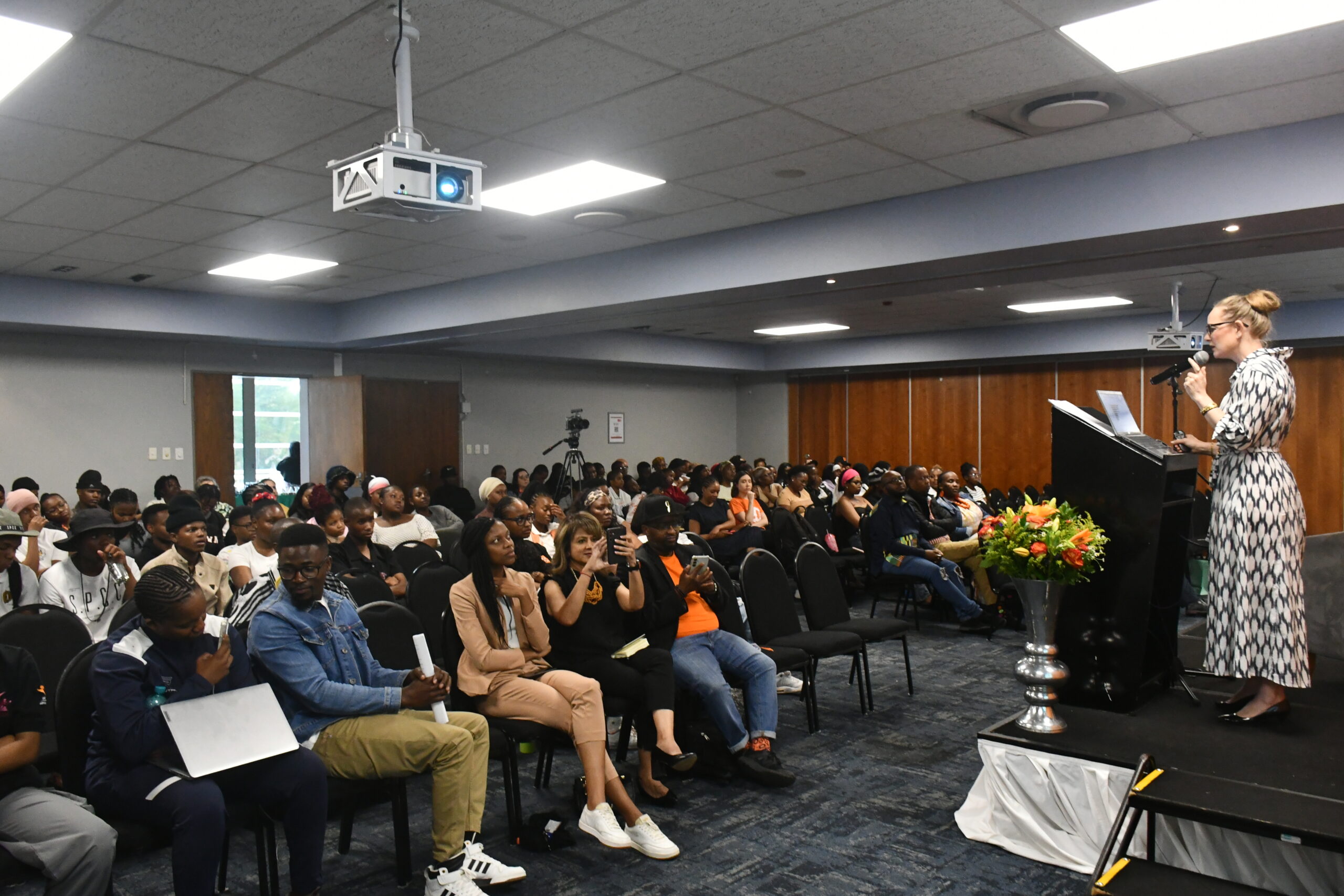The University of Johannesburg (UJ) hosted a dynamic conversation on sustainable and healthy food production on Friday, 17 October 2025, bringing together local and international voices. The seminar, titled “Nutrition Education: Sustainability Through Shared Knowledge and Realities,” was a robust session designed to engage students on the critical importance of conscious eating.

The keynote address was delivered by British-based Farmer and Storyteller Mr. Henry Wood, who spoke passionately about “Sustainable Food Knowledge and Systems.” Drawing from his extensive experience farming lands in Australia and the UK, Mr. Wood argued that the widespread consumption of unhealthy food stems directly from the industrialized production of ultra-processed foods, which are often loaded with harmful chemicals and pesticides.
Mr. Wood strongly advocated for a return to organic foods, emphasizing that healthier lifestyles begin with the right fats and avoiding industrial seed oils. He highlighted the destructive link between unbalanced fat consumption and mental health:
“Today, the average person eats 20 or even 30… of omega 6. That imbalance drives inflammation, especially in the brain, reducing serotonin and dopamine, the very chemicals that keep you calm, focused and happy. And we wonder why we have a mental health crisis.”
He identified the source of this imbalance – cooking oil, sunflower, rapeseed, soybean, chips, biscuits, and snack bars – and offered simple alternatives: “Throw out anything that says sunflower, canola, soy or rapeseed. Cook with olive oil, butter, ghee, tallow or coconut oil. Eat fish, eggs and grass-fed meat – because peace of mind starts with the fat your brain is built from.”
The power of homegrown food

Echoing the call for self-sufficiency, Ms. Linda Galvad from Sought After Seedlings encouraged attendees to start their own home gardens. She reminded the students of the wisdom of their ancestors who produced their own organic food and did not contend with the chronic illnesses often linked to genetically modified and processed diets.
“In the past, your forefathers and foremothers produced their own food, and they did not battle with chronic illnesses… Nowadays, not many people produce their own foods. You do not need a big piece of land to grow fresh produce, you can start planting at the back of your house,” Ms. Galvad noted, underscoring that healthy food production is accessible to all.
Key Insights and Resources
The seminar also featured several other important contributions:
Chef Nonhlanhla Moroenyane (Chef Noni) emphasized the cultural and nutritional importance of incorporating indigenous foods and diets into daily household meals.
Nelson Mandela University’s SNAC group presented its report on “Student hunger-related work,” sharing research findings to identify better ways to improve nutrition across university campuses.

Attendees were provided with a new recipe booklet featuring 20 quick and healthy meals from the UJ What’s Cooking? show, with recipes compiled by the UJ Head Chef Douglas Momberg and Healthy Campus Programme stakeholders.
The positive response was immediate, with one student noting: “We need more seminars like this to educate us and engage the majority of the UJ students about the importance of healthy food consumption… This conversation and the booklet will help us put together quick, healthy meals in a short period of time.”
Organized under the UJ Healthy Campus Programme’s Nutrition Pillar, the event successfully advocated for healthy eating and lifestyles, attracting over 200 students from UJ’s four campuses. The success of this second edition of the nutrition conversation series – which follows the April 2025 inaugural event and the UJTV Cooking Show – indicates a clear demand for robust engagements on leading healthy lifestyles.
This seminar was organised by UJ Sport, the Food Evolution Research Laboratory (under the UJ School of Tourism and Hospitality, STH), and the Centre for Ecological Intelligence (CEI), in partnership with South Africa’s iconic food brand, Lucky Star (Pty) Ltd.
Follow UJ Sport on Facebook, X, and Instagram for daily updates.



